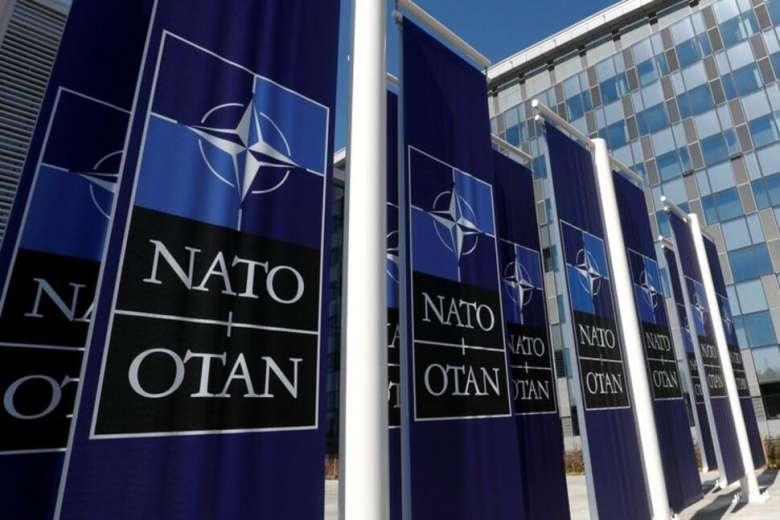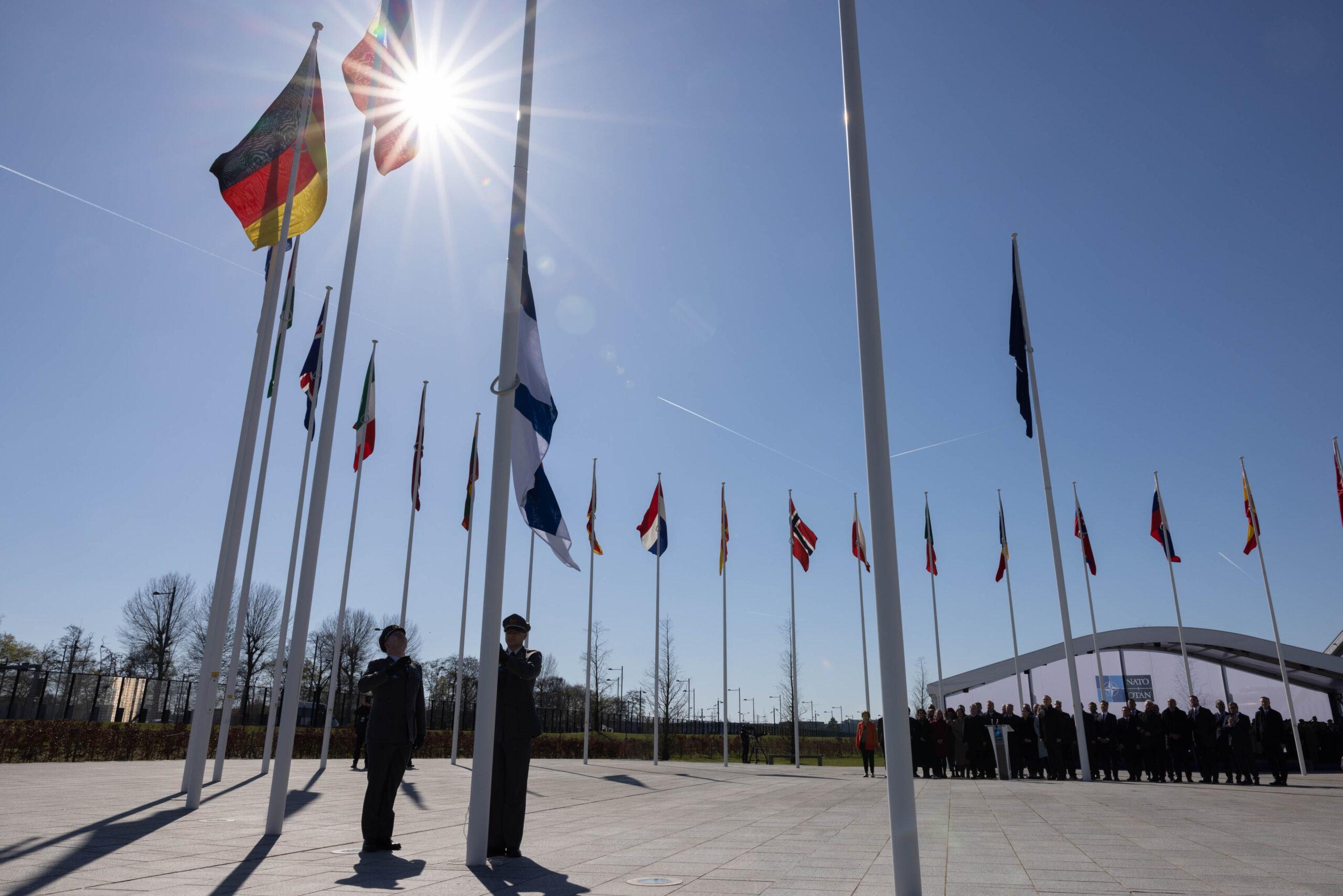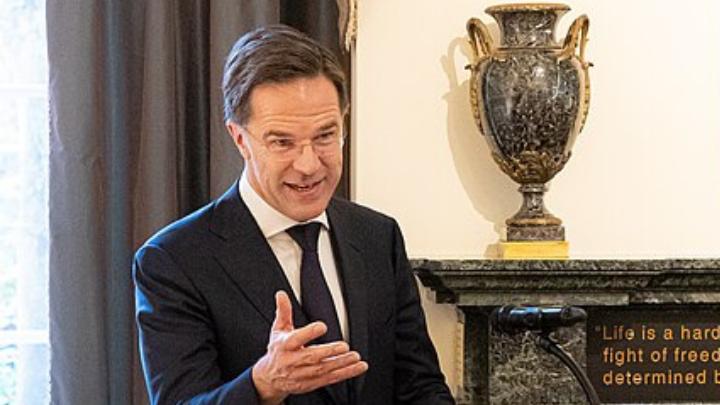Strategic recalibrations amid Russia's war in Ukraine A pre-NATO summit analysis
As Russia’s war against Ukraine unfolds with unpredictable battlefield dynamics, the upcoming NATO summit in Washington on July 9-11 assumes critical importance against a backdrop of heightened tensions and strategic recalibrations. Russian President Vladimir Putin’s assertions of maintaining battlefield initiative contrast sharply with the deteriorating economic conditions, manpower shortages, and growing Western solidarity supporting Ukraine.
Shifting battlefield dynamics & tactical realities
Recent developments highlight the volatile nature of Russia's military operations in Ukraine, particularly focused on the Kharkiv region. Initial gains have given way to an unstable equilibrium, challenging Russia's narrative of continued strategic initiative. This phase has allowed NATO and its allies to reassess and strengthen their support for Ukraine amid ongoing Russian offensives and geopolitical manoeuvres.
President Vladimir Putin's recent announcements regarding new weapon systems, including intermediate-range missiles, underscore Moscow's efforts to regain momentum. However, tactical setbacks, such as Ukraine's enhanced missile defense capabilities and increased air superiority, pose significant challenges.

These developments, coupled with Western consent for Ukraine to deploy long-distance weapon systems, highlight Ukraine's evolving defensive capabilities and the strategic implications for the conflict's trajectory.
Western solidarity & strategic responses
Western nations have responded with increased solidarity towards Ukraine, pledging extensive military and economic support ahead of the NATO summit. The imminent deployment of F-16 fighter jets and enhanced artillery capabilities through joint procurement initiatives reflect NATO's commitment to bolstering Ukraine's defense capabilities.
The acquisition of MIM-104 Patriot surface-to-air systems from Israel further strengthens Ukraine's defenses against Russian missile threats, marking a significant shift in the regional military balance.
Strategically, NATO's cohesive stance and bilateral security agreements with Ukraine signal a united front against Russian aggression. Discussions on Ukraine's prospective NATO membership, underscored by recent agreements with the European Union and forthcoming agreements with Poland, emphasize NATO's long-term strategic commitment to Ukrainian security.
Economic & demographic pressures on Russia
Beyond military dynamics, Russia is facing mounting economic challenges exacerbated by prolonged military expenditures and international sanctions. The strain on Russia's economy, exacerbated by inflation and budgetary pressures, underscores the broader implications of sustained military engagement. Reports of demographic strains, including recruitment challenges and high casualty rates among Russian forces, further highlight the human toll and economic strain of the conflict.
Meanwhile, Ukraine's resilience amidst economic disruptions, including targeted Russian strikes on infrastructure, underscores the critical role of international economic aid in sustaining Ukraine's defense efforts. External financial support, such as the recent IMF credit tranche, bolsters Ukraine's ability to withstand economic attrition and maintain defensive capabilities.
Late in June, the IMF's Executive Board completed the Fourth Review of Ukraine's Extended Fund Facility (EFF) arrangement, allowing Ukraine to receive a disbursement of approximately US$2.2 billion (SDR 1.66 billion) for budget support. Despite challenging conditions, Ukraine has performed well under the EFF, meeting all quantitative performance criteria for March and most structural benchmarks through June.
The Ukrainian economy remains resilient, though outlook uncertainties are exceptionally high. Continued reform momentum and timely external support are crucial to maintaining macroeconomic stability, fiscal sustainability, and institutional reforms necessary for EU accession. The EFF, part of a larger support package totaling US$122 billion, aims to stabilize Ukraine amidst ongoing conflict impacts and economic uncertainty.

NATO members have agreed to provide Ukraine with military aid totaling 40 billion euros ($43 billion) next year, according to a Reuters report citing a Western diplomat who spoke on July 3.
The commitment is expected to be finalized during the NATO summit in Washington from July 9-11, where Allied leaders will sign off on the funding, the news agency noted.
NATO Secretary General Jens Stoltenberg has advocated for a minimum annual defense aid of 40 billion euros to Ukraine in the coming years to ensure sustained support, matching the average commitment since the outbreak of full-scale war in 2022.
Details on whether this agreement extends beyond 2025 remain unclear.
Ahead of the summit, Kyiv has expressed hopes for guarantees of future military aid and clear signals regarding its NATO membership aspirations.
While an invitation for membership is unlikely during this summit, NATO officials plan to introduce "new language" on Ukraine's NATO prospects and focus on a roadmap toward eventual membership. The alliance also intends to establish a senior representative in Kyiv and create a new command center in Germany to coordinate assistance for Ukraine, particularly amid concerns about potential shifts in US leadership.
Former President Donald Trump, the presumptive Republican nominee, has previously criticized NATO and aid to Kyiv, raising questions about the stability of pro-Ukraine alliances. These concerns are compounded by the rise of far-right and populist parties in Europe, which have also expressed skepticism toward aid for Ukraine.
Geopolitical ramifications & NATO summit expectations
At the geopolitical level, the NATO summit presents an opportunity for NATO members to reinforce their commitment to Ukrainian sovereignty and discuss strategies to counter Russian aggression effectively. The European Union's ongoing economic aid and diplomatic initiatives, including discussions on Ukraine's accession, underscore a cohesive Western approach to the conflict.
The appointment of Kaja Kallas as the EU High Representative for Foreign Affairs and Security Policy signals continued European resolve in supporting Ukraine and countering Russian influence. Moscow's perception of heightened "Russophobia" within EU strategy reflects growing tensions and diverging geopolitical interests between Russia and Western allies.
Strategic outlook & NATO's role
As the NATO summit approaches, expectations are high for renewed commitments to Ukrainian security and strategic deterrence against Russian aggression. Putin's efforts to maintain a semblance of initiative amidst mounting challenges underscore Russia's strategic vulnerability and the shifting dynamics of contemporary warfare.
NATO's coordinated response, characterized by enhanced military support, economic aid, and diplomatic solidarity with Ukraine, sets the stage for continued Western pressure on Moscow. The summit's outcomes will likely reaffirm NATO's strategic pivot towards Eastern Europe and signal enduring support for Ukraine's sovereignty and security amid ongoing regional instability.

To recap, while Russia seeks to maintain battlefield initiative, the evolving military, economic, and geopolitical dynamics suggest a complex and uncertain path forward. The NATO summit stands as a pivotal moment to reinforce Western unity and strategic resolve in confronting Russian aggression and advancing regional stability in Eastern Europe.
From July 9 to 11, the United States will host the NATO Summit in Washington, marking the seventy-fifth anniversary of what has been deemed by some as the world's “most successful military alliance”.
The NATO Summit in Washington will mark 75 years of historic achievements, demonstrate the strength and unity of our transatlantic bond, advance the implementation of the most robust deterrence and defense plans since the end of the Cold War, and showcase NATO's vital role in the world.








